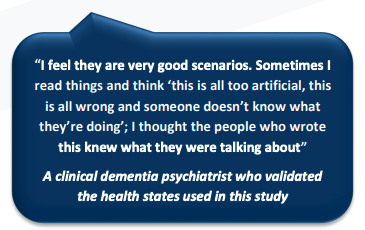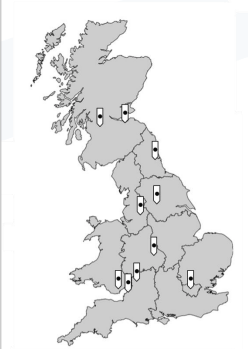Quantifying the impact of caregiving for patients with a degenerative CNS condition
A disutility study of caregivers using the time-trade-off (TTO) approach
The challenge
Our client was in the late stage development of a treatment to be used in a severe, progressive neurological condition associated with substantial caregiver burden. In order to demonstrate the full socio-economic value of the product for UK HTA submissions, they first needed a robust and approved method of defining utility values for the caregiver population.
The solution
We conducted a utility elicitation study which comprised a range of research activities to derive preference-based utility values from a representative sample of the UK population, specifically:
> A systematic review of caregiver outcomes within the disease area to establish the research to date and to understand the specific drivers of disutility.
> Interviews with clinical experts, KOLs and caregivers of patients at different stages of the disease to provide insight for caregiver health states.
> Validation interviews following the development of health states to ensure the health states were representative of the caregiver burden.
> Over 100 face-to-face interviews with members of the UK general public to elicit utility values using the TTO methodology.
Key results
We managed the execution of the project from preliminary research to communication of the results, working closely with local vendors to ensure a high quality and streamlined delivery. Our utility elicitation study was the first of its kind to generate TTO-derived utility values in a caregiver population in this disease area. Analysis of the results identified interesting trends in utility values, providing useful discussion points for inclusion in HTA submissions.
Value to the client
The outcomes of this study were incorporated into economic models for submission to NICE and SMC. By demonstrating the value to caregivers as well as patients, this innovative approach optimised the value from an NHS perspective and provided the groundwork for future international HTA submissions.


